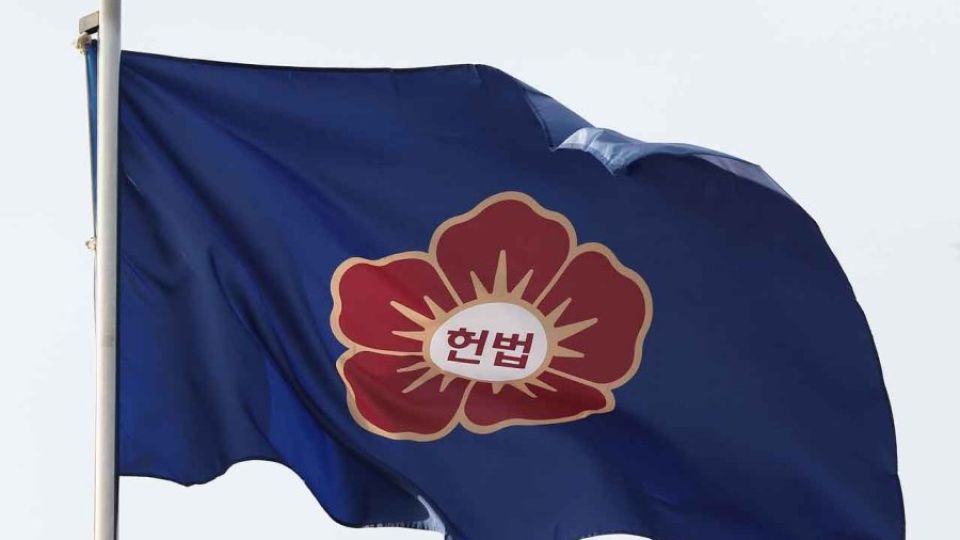December 24, 2024
SEOUL – Yoon prioritizes defending himself in Constitutional Court over investigations, confidant says
The Constitutional Court of Korea said Monday that it would hold a preparatory hearing on Dec. 27 as planned, despite President Yoon Suk Yeol’s continued refusal to accept court orders.
The court, which must deliver a final decision on Yoon’s impeachment within 180 days, said the six justices had decided to consider Yoon as having received the written requests on Dec. 20.
“Based on the civil procedure Article 187 and criminal procedure Article 61 clause 2, the written requests can be considered ‘received’ when those documents arrive at the recipient’s address, regardless of acceptance or rejection,” the court press officer Lee Jin told the press in a briefing held Monday.
The court added that it sent three documents. The first was a notice of his trial registration which attached a copy of an impeachment bill and a statement for him to prove his case. The next was a notice on the hearing dates, which attached a request to show up at the court at a designated date. The last document was a court order for Yoon to prepare his statement of opinion and hand in evidence such as Cabinet meeting minutes.
The deadline for Yoon to submit such documents is set by Dec. 24.
Whether Yoon physically received the documents or not, the court said it would proceed with the set date of Dec. 27 for his first preparatory hearing. Justices held their first round of meetings for the trial on Thursday last week.
When asked if Yoon’s apparent refusal to receive the court’s requests in a potential play to delay court proceedings could impact the later part of the trial, Lee said it would be decided by the “two lead judges” — Lee Mi-sun and Jeong Hyung-sik — who oversee the evidence examination and arguments.
Concerns have surfaced over trial delays that could be caused by Yoon’s lack of an appointed attorney to represent him in court. When asked, the court responded that it would not discuss things that had yet to happen.
“(Decision on further processes) all depends on the two lead judges and there is nothing we can say further about it,” Lee said.
Meanwhile, lawyer Seok Dong-hyeon, Yoon’s confidant who is working on forming a line of legal representatives for the president’s trial, dismissed criticisms that he has been dragging out the trial procedures by not complying with authorities.
“He needs preparation time to sincerely prepare for the impeachment process,” Seok told reporters Monday, adding that such concerns were “hasty judgment.”
Seok stated that Yoon is under “no obligation” to comply with investigative bodies, as he remains the president despite being temporarily suspended from his duties. Seok also emphasized that Yoon believes defending himself in the Constitutional Court trial should take precedence over any ongoing investigations against him.
Earlier in the day, the Corruption Investigation Office for High-ranking Officials looking into Yoon’s alleged insurrection and abuse of authority following the Dec. 3 martial law attempt, announced that its request to demand Yoon show up for the investigation had also failed to be delivered.
It was the CIO’s second request for Yoon to appear, with the request asking him to attend by 10 a.m. Wednesday.
The court tried sending the documents several times throughout last week via post, email and the court’s staff, but all failed to be delivered to either the presidential office or Yoon’s residence, as the presidential security service refused to receive them. Those sent on Monday have been returned to the court.
This sets Yoon apart from the country’s two previous president impeachment trials. In 2004, ex-President Roh Moo-hyun received the court’s written request just a day after the impeachment bill passed the Parliament on March 12, 2004. Five days after on March 17, Roh submitted his statement and a warrant of attorney to the court.
In 2016, ex-President Park Geun-hye received her written requests from the court just an hour after her impeachment bill was passed. A week later, Park’s attorney turned in the statement and a warrant of attorney to the court.


